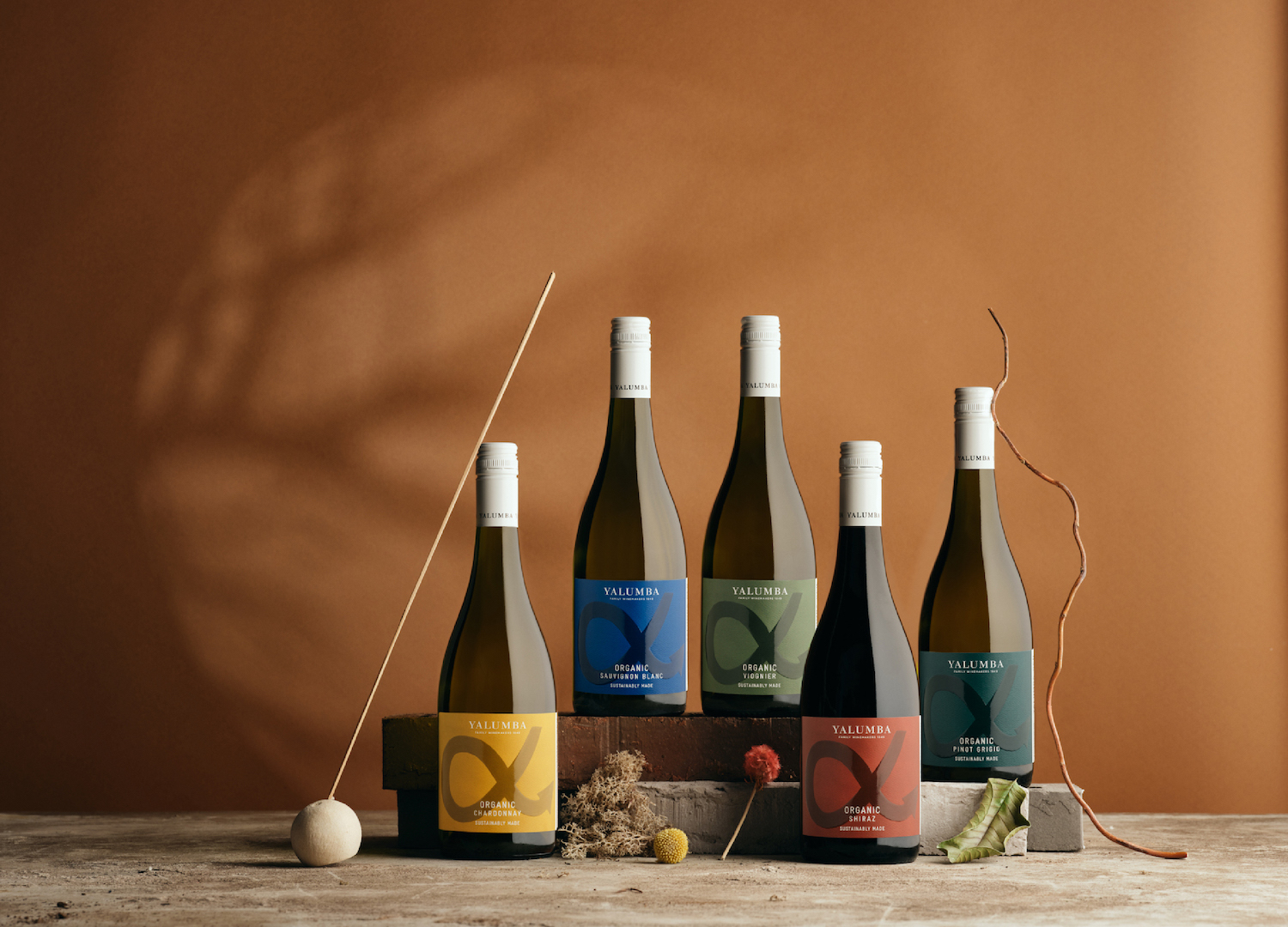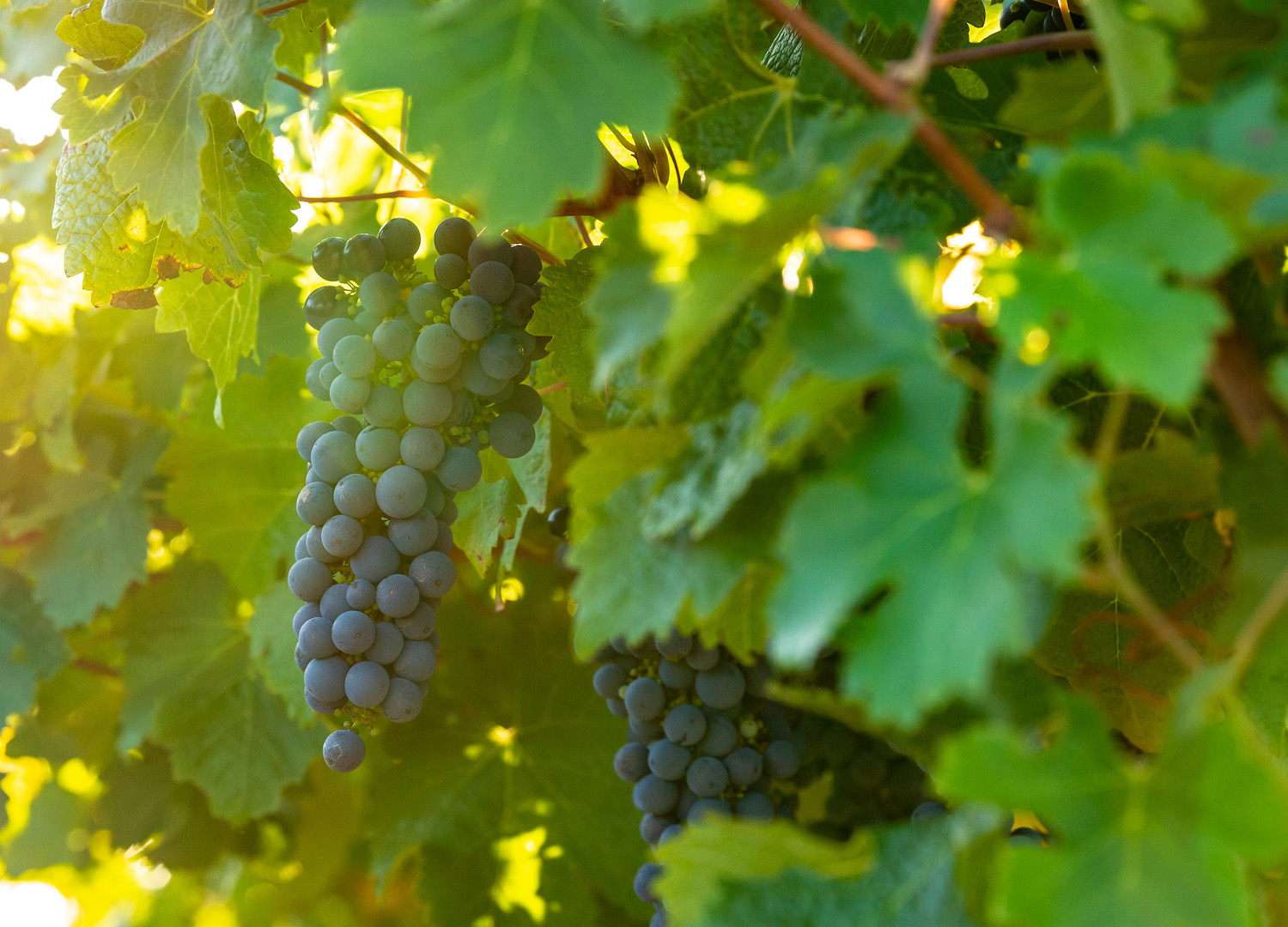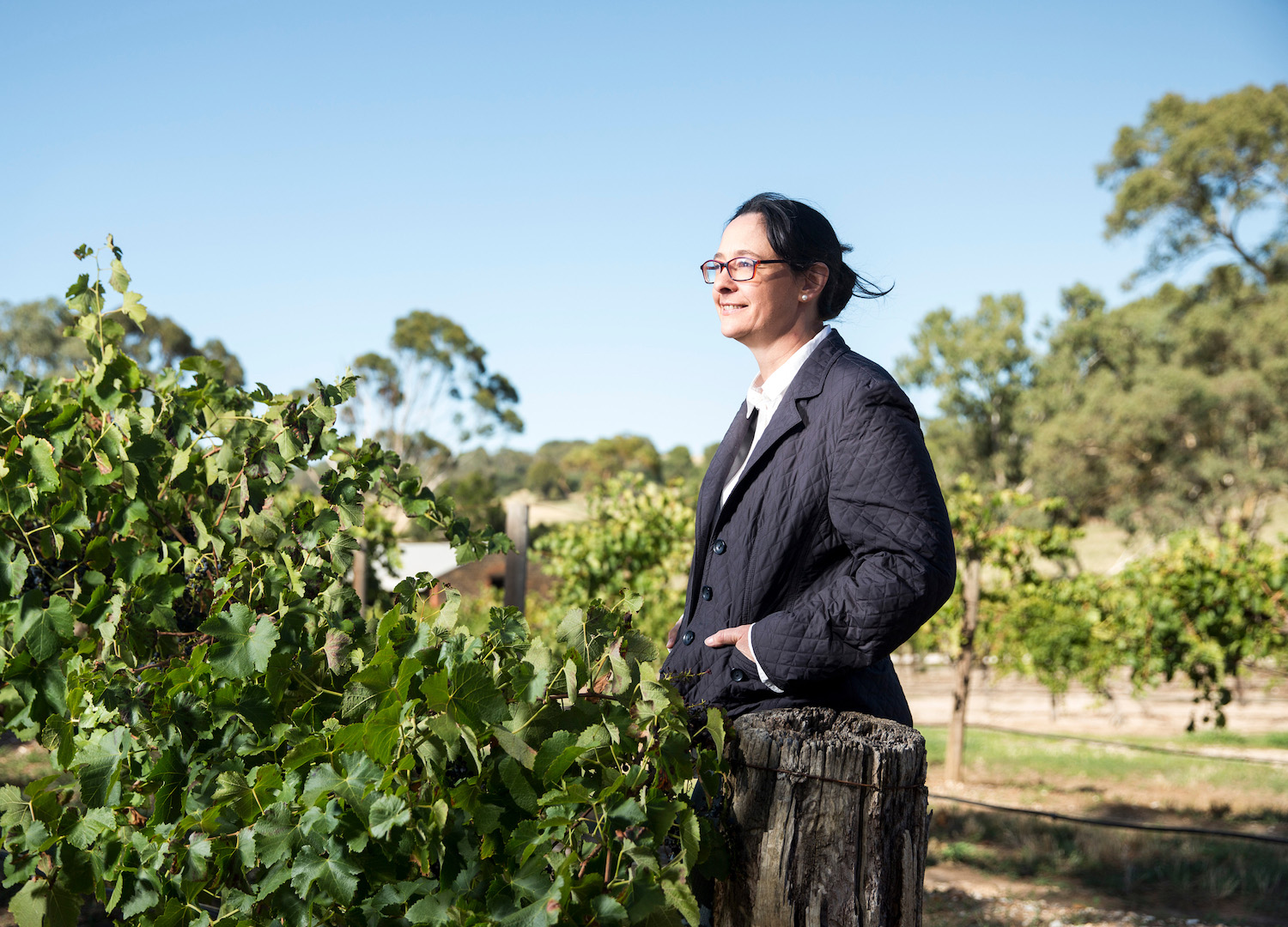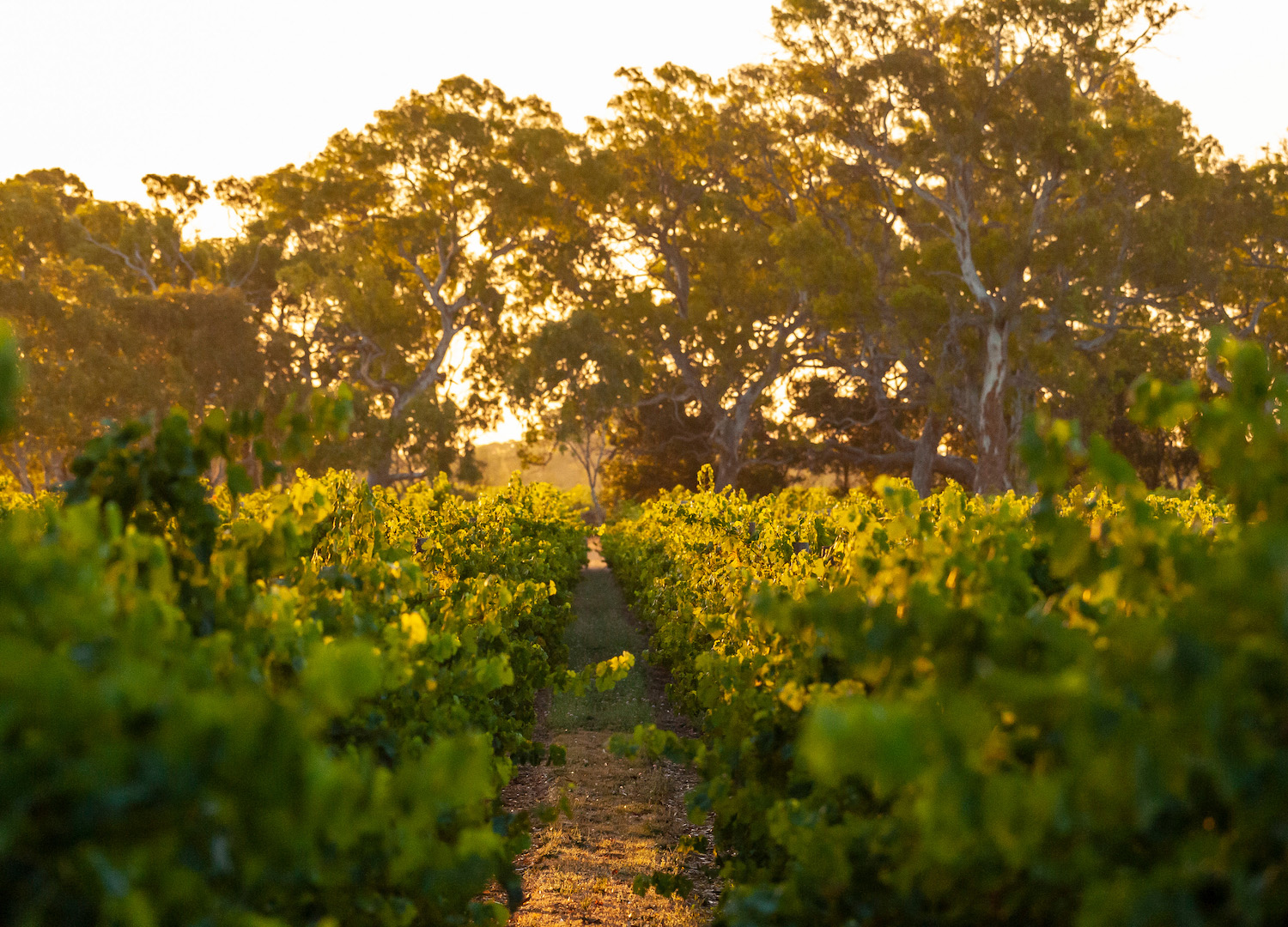
Wine Talk: Are You Confused About What Organic Wine Really Means?
words EMILY LUSH photos below SUPPLIED BY YALUMBA
Australians love their wine – and a growing number of us have a special spot reserved in our fridges for organic plonk. But wine language can be tricky. And those of us interested in considerate consumption might not have the vocab to get what we want at our local. In this series – created in partnership with our good friends at Yalumba to celebrate the launch of their GEN range of five organic, ACO-certified, sustainably made wines – we get to the bottom of the bottle in order to generate good and answer questions like: What makes a sustainable wine? And, what words should we be looking for on the label? In the first of the series, what does organic wine actually mean?

In 2021, Australia was among the top six countries with the highest wine consumption per capita, averaging 28.7 litres (that’s around 190 standard glasses) per person. And with sales of organic bottles increasing by as much as 50% year on year, our palate for low-impact, environmentally friendly wines is certainly maturing.
Yet misconceptions about organic wine – and how exactly it varies from conventional wine – are still widespread. If you don’t know the difference between organic, non-organic, biodynamic and vegan wines, you’re not alone. This complex landscape of standards, certifications and benchmarks is notoriously difficult to navigate, even for winemakers.
“There’s a lot of confusion around what ‘organic wine’ means in the industry,” says Louisa Rose, Head Winemaker at Yalumba. The fallacy that “all wine comes from the ground, so surely all wine is organic” belies the fact that this specialised branch of winemaking goes against the grain of industry norms.
Based in South Australia’s Barossa Valley, Yalumba has made a name for itself as a pioneer of low-intervention winemaking, championing vineyard biodiversity and a ‘less is more’ approach in winemaking . Working with the land and allowing Mother Nature to guide the process has been at the heart of the family-run business since it was founded back in 1849. Yalumba bottled its first 100% organic wine in 2005 and has since achieved Sustainable Winegrowing Australia certification across all its estate vineyards, launching a collection of Australian Certified Organic (ACO) wines under the label Yalumba GEN.
Yalumba has made a name for itself as a pioneer of low-intervention winemaking, championing vineyard biodiversity and a ‘less is more’ approach in winemaking . Working with the land and allowing Mother Nature to guide the process has been at the heart of the family-run business since it was founded back in 1849.
In plain terms, organic wine – for instance, a Yalumba GEN Organic Chardonnay or Organic Viognier – is wine produced from organically grown grapes. As with other agricultural products, this means utilising farming methods that are free from the chemical fertilisers, pesticides, fungicides and herbicides commonly used for managing pests and weeds in non-organic viticulture.
In the place of synthetics, Yalumba has built up an arsenal of natural weapons to ensure productivity and promote healthy vines. “This includes practices such as planting annual crops in mid rows to create natural carbon sources, and the use of native species to attract natural predators to undesirable pests,” Louisa explains. “To become Certified Organic takes a minimum of two to three years.”


above LOUISA ROSE, HEAD WINEMAKER AT YALUMBA
The vineyard is just the beginning, too. Once the grapes have been plucked, there are myriad other factors at play. There’s the fermentation process to consider, and the question of preservation.
In most instances, wine labelled ‘organic’ doesn’t necessarily mean that it’s additive-free. In Australia, organic vintners are still permitted to use animal enzymes, for example. Yalumba goes a step further here, employing natural yeasts across the entire collection to ensure all wines are vegan-friendly.
“We only use what is naturally produced throughout the fermentation process or what is already in the grape, including sulphites and tartaric acid,” Louisa shares. “We found that by leaving our juices on full solids, there was a natural fining occurring at the end of fermentation as the yeast cells died. By mixing these solids, the wines built up texture and softened, thus negating the need for animal finings.”
To add yet another layer of complexity, the term ‘organic wine’ means different things in different countries. With no international standard for what constitutes ‘organic’, interpreting labels can be difficult for consumers – and exporting wines globally is a challenge for winemakers.
“We have set our practices to comply with the toughest criteria from each market – that is, if something is not allowed to be used in a single market, we do not use it at all in any of our wines,” Louisa says of Yalumba’s approach. “The only exception is that we use a small number of sulphites as a preservative.”
The benefit is that the flavours from the vineyard are retained in the final wines. They are truly a reflection of their terroir.
Like many in the industry, she believes that universal criteria would make things easier for everyone. “A global standard would be the best option as it would bring consistency to the processes and practices that are currently not available due to the rules being different in every market,” she says. “Consumer confidence can then be assured through every certified bottle.”
Still, misunderstandings persist around organic wine. A common understanding of what ‘organic’ actually means for consumers would surely help to relieve some of these – and better spotlight its environmental and health benefits.
“There’s a perception that organic doesn’t taste as nice as normal wine. This is a myth!” Louisa exclaims. “Organic wines tend to be delicious as there is minimal intervention.” Yalumba GEN wines also contain less sulphur and fewer additives. “The benefit is that the flavours from the vineyard are retained in the final wines,” she says. “They are truly a reflection of their terroir.”



